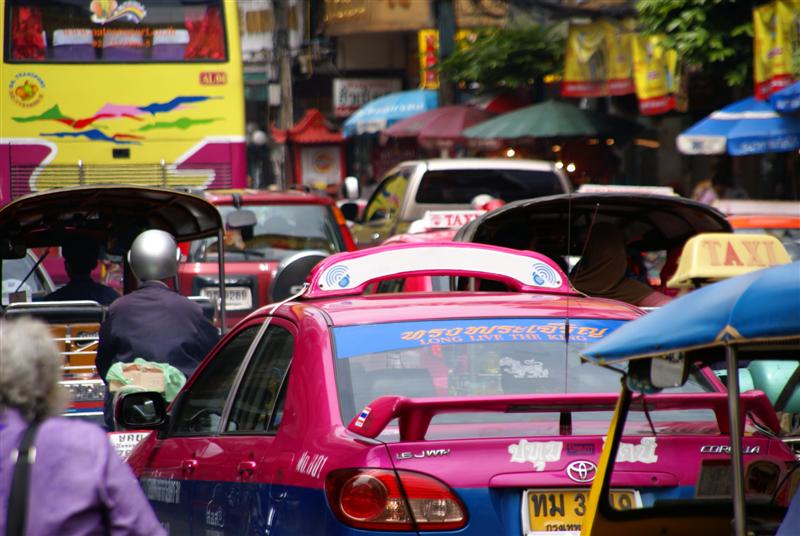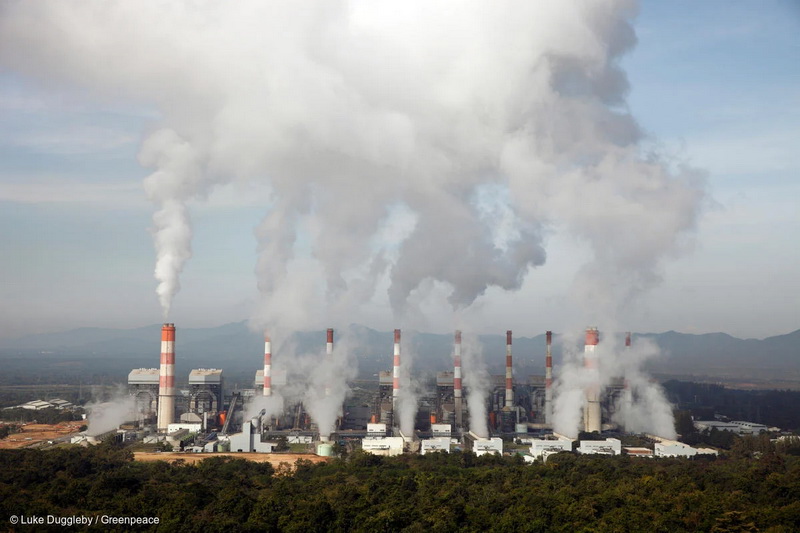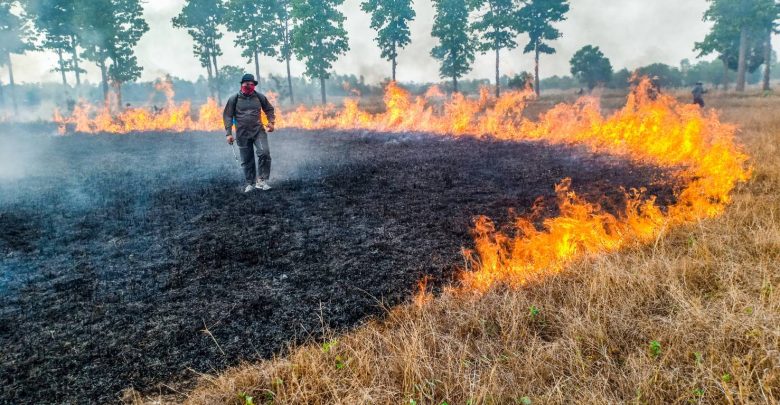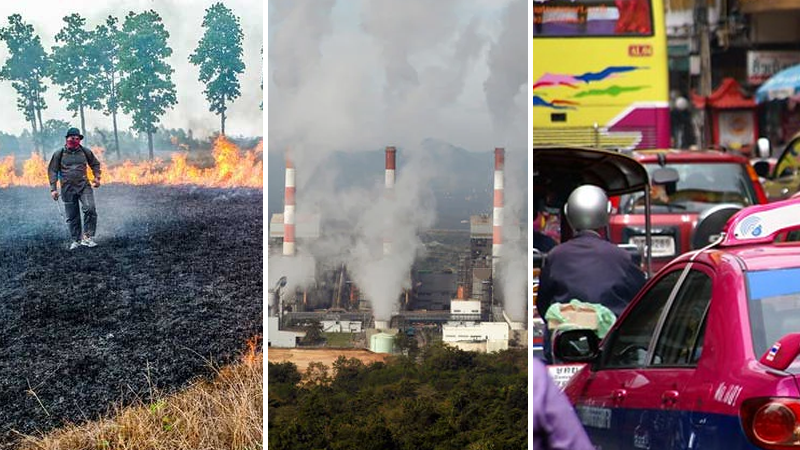It’s difficult to enjoy the cool that’s descended over Bangkok this week when smog levels have hit lung-burning highs.
While the nation’s top environmental official recently passed the buck, saying they were all out of ideas, experts say Thailand could do much better than telling people to suck it up and breathe toxic air by taking practical measures – instead of blaming the weather and public itself.
Reducing air pollution, namely dangerous PM2.5 particulates, isn’t impossible but takes a comprehensive and practical approach focused on its primary sources – automobiles, factories and agriculture, they said.
Greenpeace Thailand Director Tara Buakamsri said that officials need to move past “stop blaming the weather every year” and wasting money on pointless gestures such as the risible sight of trucks spraying water into the sky, which he said is just “pouring money down the drain.”
That’s a departure from what Environment Minister Varawut Silpa-archa’s take on things last month after pollution roared back to unhealthy levels. Warning that people would just have to take unhealthy breaths, he said that rather than complain, people should suggest their own solutions – ones they’d be willing to follow – because officials like him were all out of ideas.
“I would like to ask opinions from the public on which measures or policies they would accept and allow the government to implement?” said Varawut, who heads the Charthaipattana Party. “Because some measures have been opposed because they affect daily life, such as the truck ban for inner Bangkok.”
He went on to blame the weather for the heavy build-up of microparticulate pollutants, as well as automobiles. He said pollution was lower during the pandemic lockdown earlier last year. That was true, but it falls cyclically during the same months every year, and no measurable decline resulted from less traffic.
Instead of playing the blame game, Greenpeace’s Tara along with environmental health professor Nares Chuersuwan of Suranaree University of Technology and environmental Kasetsart University economics professor Witsanu Attavanich recommended three practical actions the government can take immediately to rein in the polluters.
Limiting road traffic

Bangkok traffic is a prime cause of PM2.5. Introducing measures like congestion pricing, proven to work from London to Singapore, would limit cars on the road and reduce pollution.
“If they want to enter downtown during the smog surge, let them pay a fee. Then it’s their decision,” Witsanu said. “Then take that money to fund research into PM2.5 that will help us tackle the problem more precisely later.”
Witsanu suggested that the cost should depend on area and time of day as well as the type and age of the vehicle, as implemented in Singapore, Hong Kong and London.
Other suggested solutions include:
When air quality is set to hit a hazardous level, workplaces and schools should be given notice to compel a percentage of employees and students to work or study from home.
Introduce a progressive tax on older vehicles and diesel-polluters rather than the current system under which owners pay less the older their auto is. Doing so would encourage people to buy newer and eco-friendlier vehicles, which should be incentivized through tax breaks as well.
Extend – and enforce – the temporary daytime ban on large trucks entering downtown to modified vehicles, as their emissions are nearly as high.
Industry cap-and-trade systems

Industry is another large contributor to our foul skies. The academics said policies need to be clear, fair and transparent. After determining the maximum emissions allowed by each factory and industrial area, that information should be made public as part of an emissions-trading system.
Under so-called cap-and-trade systems, those that remain below their cap win incentives and can trade their unused capacity with those who exceed their quotient.
If the laws are actually enforced – always an iffy proposition – with painful fines culminating in risk of shut down, businesses will be pressured to adopt more efficient technologies.
Crop burning: manage and mitigate

More than 9.3 million people – over one-in-seven working-age Thais – work in agriculture, and seasonal burning is the third major source of airborne filth. Corn grown for the major ag conglomerates is one of the largest sources, as burning all the unused husks and stalks left behind is more cost effective than hauling them off for disposal.
And while such burning is illegal, heavy-handed blanket bans are ineffective as they go ignored or unenforced.
One stopgap measure the experts suggested was creating a channel for farmers to schedule their burns so they don’t all take place simultaneously or at the worst times.
“Nature has ways to absorb and eliminate dust,” Witsanu said. “We can observe that smog doesn’t build up well in a windy region. That’s the day officials can allow a certain number of farmers to burn their crops.”
Other longer-term solutions include creating economic incentives to processing the unused materials into biofuels that can be used to power everything from certain industries to food stall cookpots.
Though the burning is a crime and the authorities are reluctant to fine low-income farmers, Greenpeace director Tara said that if they don’t take other steps and continue to burn with no regard, whoever is actually responsible – megacorp or freelance farmer – should pay the penalty. Instead of a one-fine-fits-all approach, those fines should depend on the type of crop burned, as their value and contribution to pollution differ.
Related
Can’t breathe today, Bangkok? Don’t look up, it’s ugly.
Clear Bangkok’s air by working from home: health minister




